The most unusual stone buildings on Earth
Categories: Design and Architecture | History | News
By Angela https://pictolic.com/article/the-most-unusual-stone-buildings-on-earth.html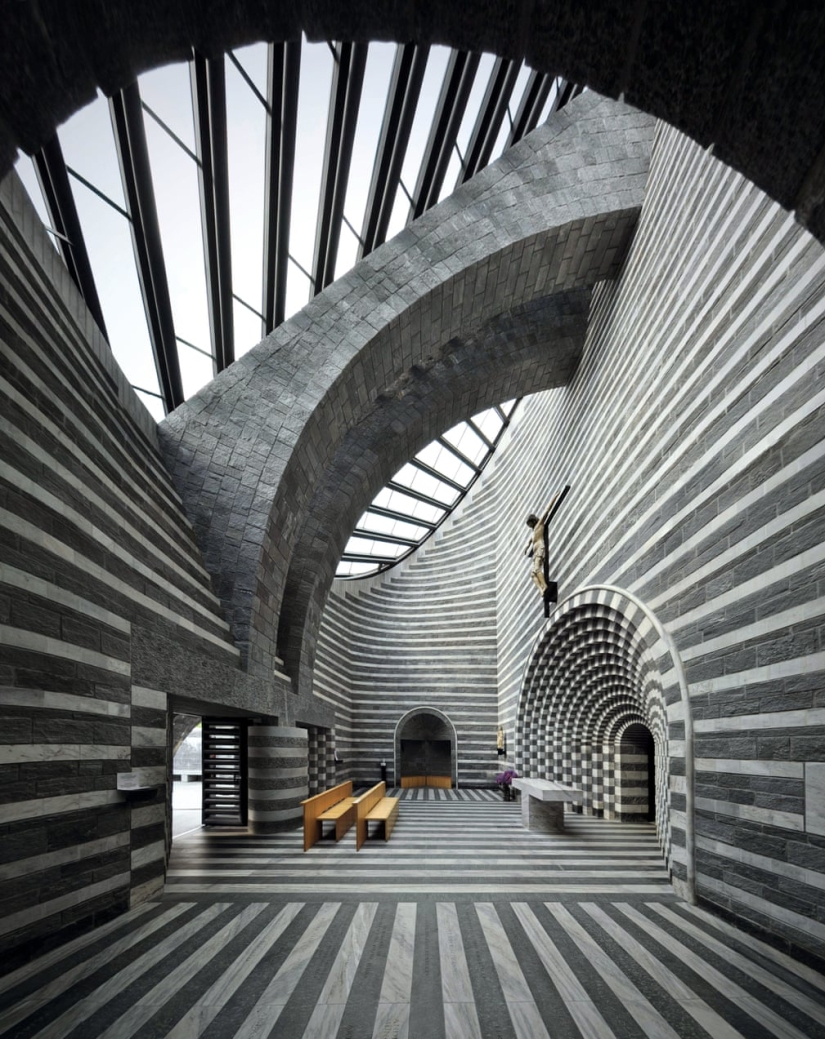 1. Church of San Giovanni Battista, Mogno, Switzerland.
1. Church of San Giovanni Battista, Mogno, Switzerland.
This building replaced a 17th-century church that was destroyed by an avalanche in 1986. Mario Botta's striking creation includes a pair of bells dating back to 1746, the only salvaged parts of the ruined structure. Alternating layers of white marble and dark gneiss from neighboring quarries provide a lively and inspiring setting. Daylight enters the tiny church through a sloping glass ceiling.
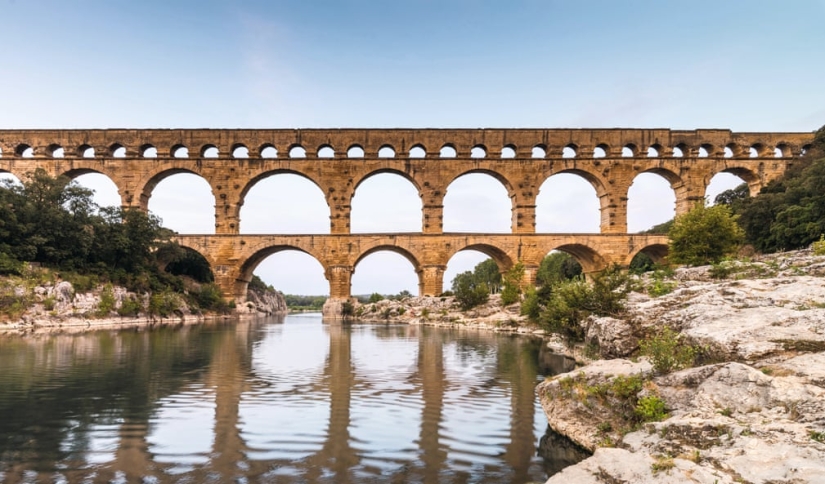 2. Pont du Gard, Roman aqueduct across the Gardon River, France, 1st century AD
2. Pont du Gard, Roman aqueduct across the Gardon River, France, 1st century AD
This exceptional Roman aqueduct was part of a 50 km canal that brought about two million liters of fresh spring water to Nimes daily. Many Roman structures were destroyed and looted after the fall of the Empire, but this one has largely survived, probably due to its use as a toll bridge. The stones are cut with incredible precision, and no mortar was used to make the aqueduct stable or waterproof. The large blocks weigh a staggering 5.5 tons.
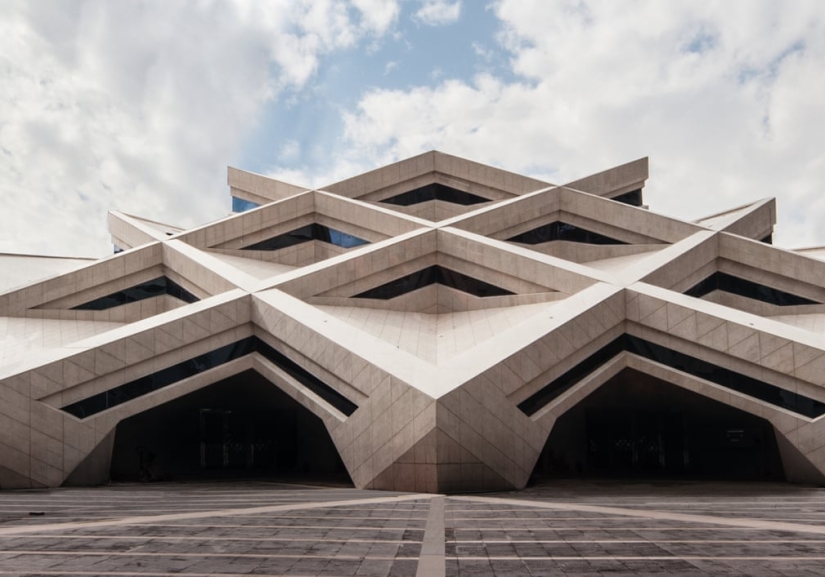 3. King Abdullah Grand Mosque, Ryan, Saudi Arabia, 2017.
3. King Abdullah Grand Mosque, Ryan, Saudi Arabia, 2017.
This dramatic mosque is part of a new $10 billion financial district in central Riyadh. Due to the predominance of neighboring high-rise offices and apartments, it is mostly visible from above, making the elaborate roof an important factor. The protruding plates were inspired by natural crystal groups formed in desert conditions, called the desert rose.
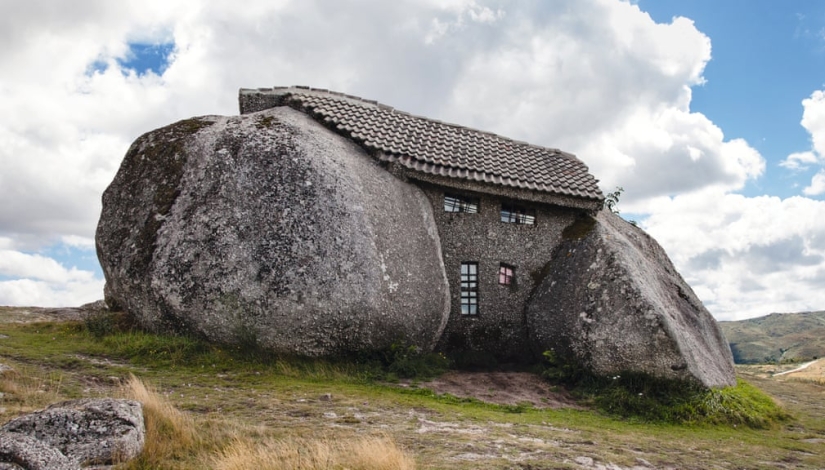 4. Casa do Penedo, 1974.
4. Casa do Penedo, 1974.
The house was created by an engineer who took advantage of how huge glacial rocks littered the landscape. The walls were covered with rough concrete to create a simple shelter. Now it is in the middle of a wind farm, although, ironically, it remains without electricity.
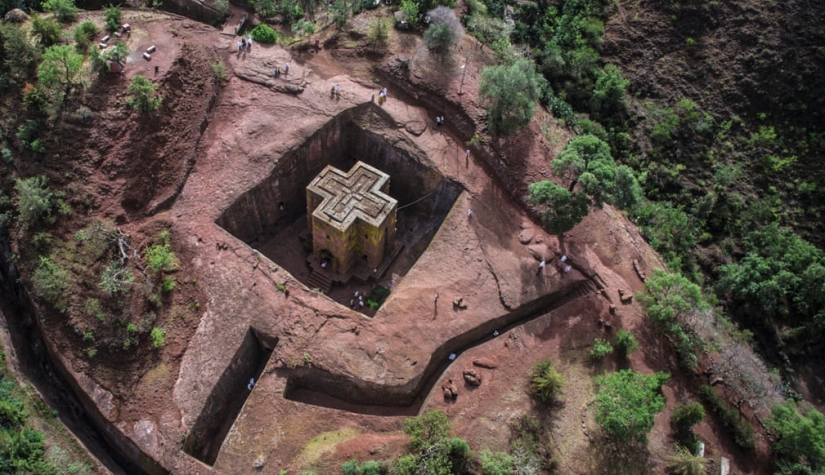 5. Church of St. George, Lalibela, Ethiopia, 1200s.
5. Church of St. George, Lalibela, Ethiopia, 1200s.
This unusual church was carved out of volcanic tuff in the early 13th century. King Lalibela completed 11 stone-carved churches, of which this is the latest.
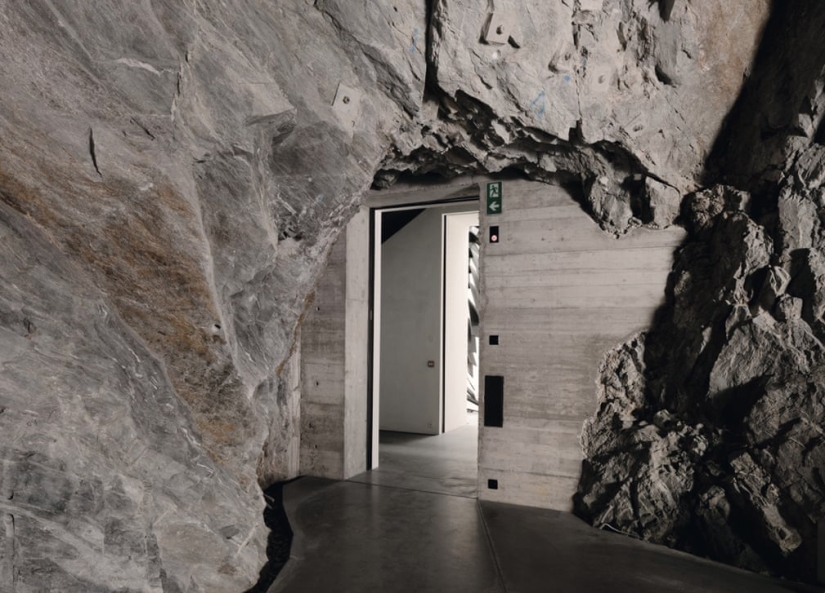 6. Muzeum Susch, Switzerland, 2018.
6. Muzeum Susch, Switzerland, 2018.
The remains of a 12th-century monastery and a brewery have been combined to create this contemporary art gallery in an alpine valley. The former brewery took advantage of a mineral water spring and was partly hewn out of stone in the 19th century. Both buildings are protected and the architects have sought to preserve the religious and geological resonance. External architectural changes were notoriously minimal.
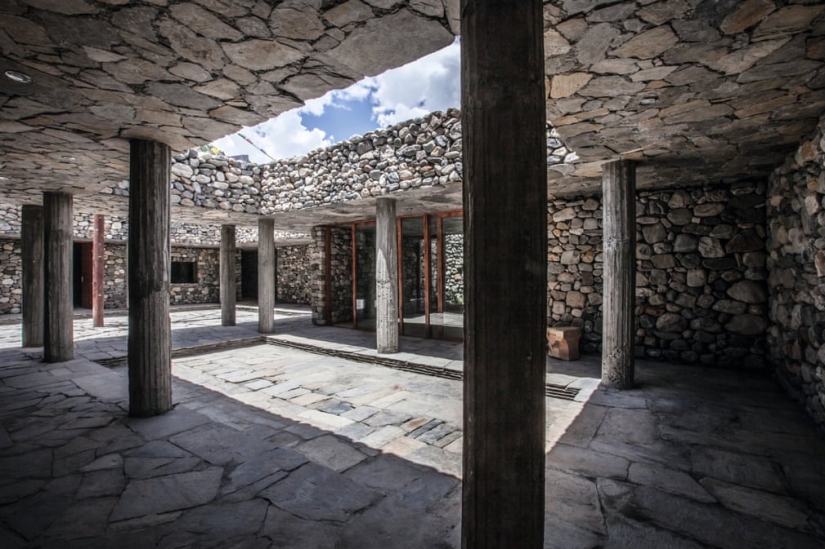 7. Himalesque, Jomsom, Nepal, 2013.
7. Himalesque, Jomsom, Nepal, 2013.
At an altitude of 3,000 meters above sea level, it was not only feasible but necessary to use labor and materials from local sources - in this case, gneiss, metamorphic rock - for this radio station, which broadcasts through the distant northwest.
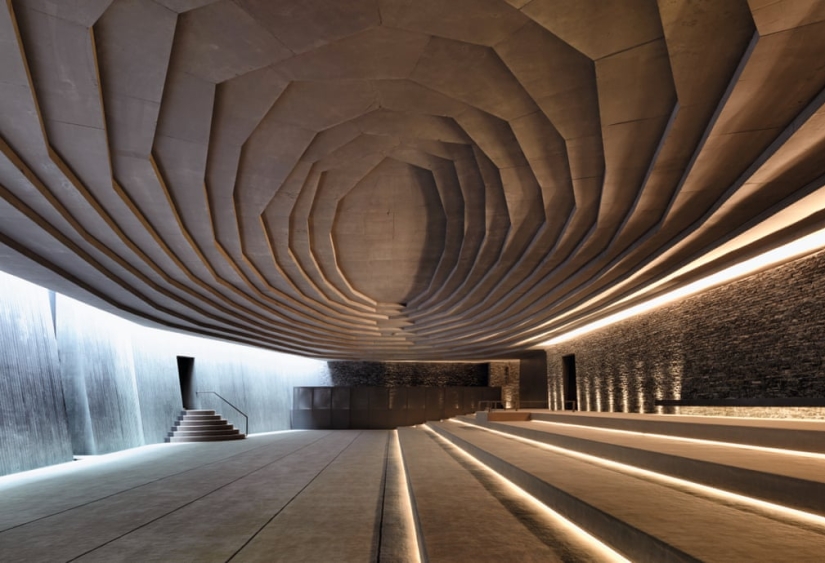 8. Sancaklar Mosque, Buyukcekmece, Turkey, 2012.
8. Sancaklar Mosque, Buyukcekmece, Turkey, 2012.
This subterranean sacred space, contested by mosque design conventions, is achieved with shallow, terrace-like steps that emphasize the connection between the landscape and the low building itself.
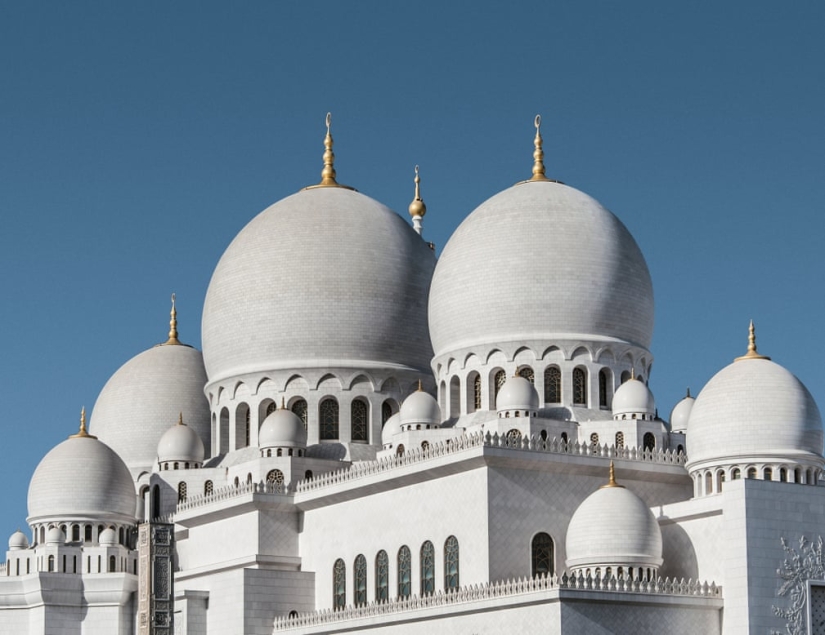 9. Sheikh Zayed Grand Mosque, Abu Dhabi, United Arab Emirates, 2007.
9. Sheikh Zayed Grand Mosque, Abu Dhabi, United Arab Emirates, 2007.
This huge mosque, the largest in the UAE, can accommodate 40,000 worshippers.
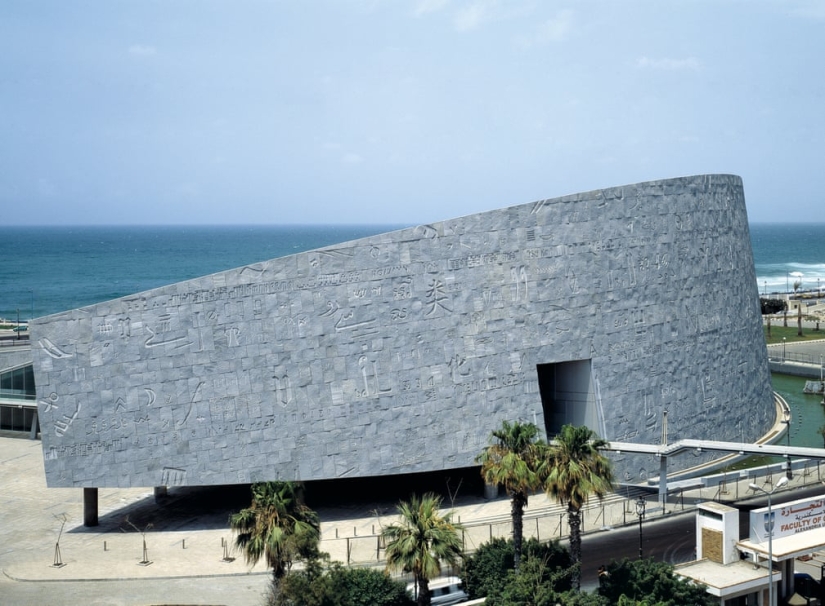 10. Library of Alexandria, Alexandria, Egypt, 2001.
10. Library of Alexandria, Alexandria, Egypt, 2001.
This huge library and cultural center was meant to revitalize Alexandria as a place of learning, reminiscent of its heyday when it was home to one of the ancient world's most important libraries. The giant disc leans towards the Mediterranean Sea, its sloping roof providing glare-free northern light for the seven-level reading room - the largest in the world - that can accommodate 2,000 readers. The project was surrounded by criticism upon completion; some have argued that more was spent on the building than on the book collection itself.
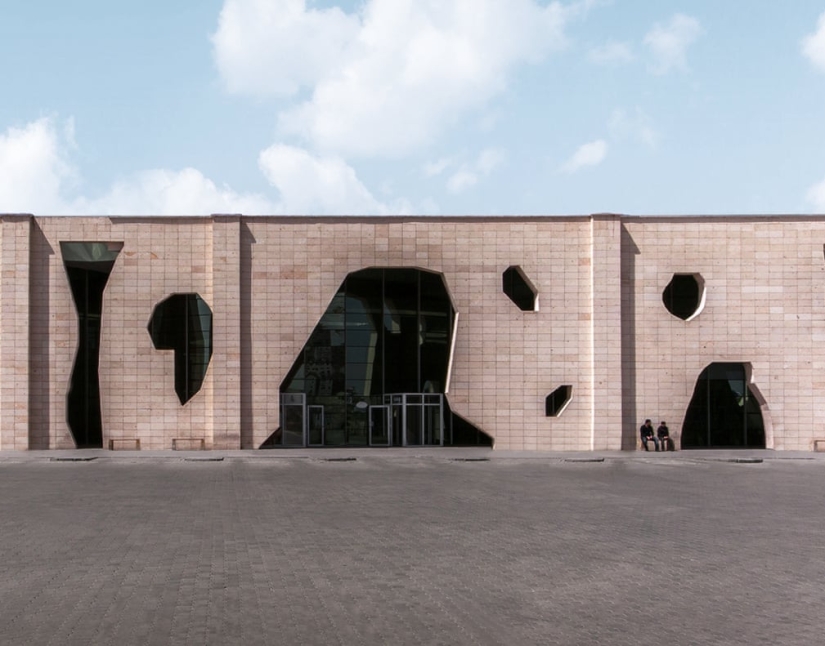 11. Nevsehir bus station, Turkey, 2010.
11. Nevsehir bus station, Turkey, 2010.
The stone wall - located 5 m forward from the main glass and steel structure - provides shelter and shade at this bus station. Amorphous abstract forms indicate what the architects call the "mysterious topography" of the Cappadocia region, of which Nevsehir is a part. Cappadocia is famous for its troglodytic buildings
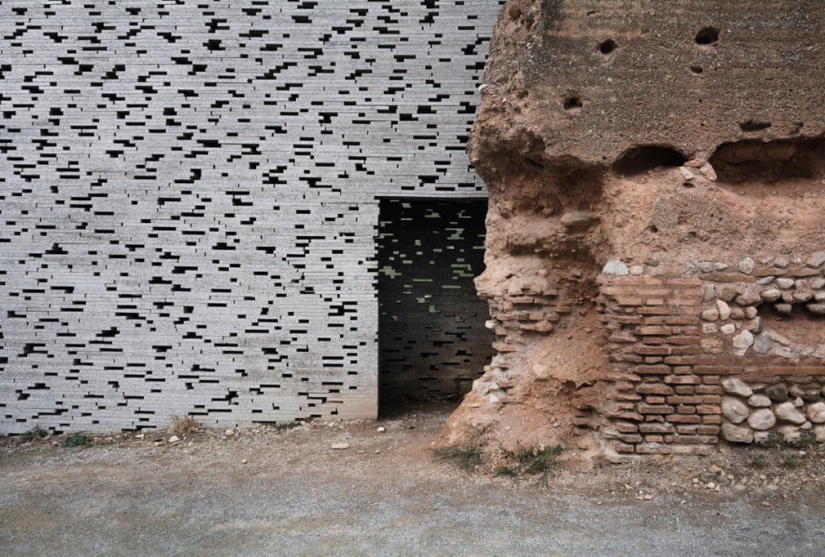 12. Moorish wall at Alto Albaicin, Granada, Spain, 2006.
12. Moorish wall at Alto Albaicin, Granada, Spain, 2006.
This 40 m high wall expands and completes the remains of an early 14th century Moorish wall. Taking on the volume of the old wall, this new section is effectively hollow and acts like a narrow covered walkway.
Keywords: ARCHITECTURE | STONE HOUSES | STONE
Post News ArticleRecent articles

It's high time to admit that this whole hipster idea has gone too far. The concept has become so popular that even restaurants have ...

There is a perception that people only use 10% of their brain potential. But the heroes of our review, apparently, found a way to ...
Related articles

Looking at this photo, you might think that it is a set for a movie about aliens. But this is not a dummy at all, but a real ...

Do you think that a studio apartment can't be a tropical garden? The designers of one of the Indian architectural studios have ...

Just one detail can radically transform the interior, and Chinese architects know about it. The Zhongshuge bookstore chain has been ...

New Year's is a time to surprise and delight loved ones not only with gifts but also with a unique presentation of the holiday ...